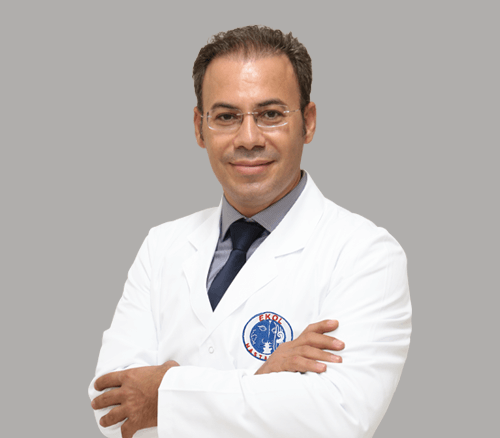Interventional radiology is a field that allows diagnosis and treatment of diseases using minimally invasive techniques. Specialist radiologists use advanced imaging tools such as X-rays, CT scans, and ultrasound to guide small instruments such as catheters and wires into the body. This approach allows for a wide variety of treatments without the need for conventional surgery. One of the other benefits of this methond is that it considerably shortens the length of hospital stay
Interventional Radiology (IR) is a medical specialty that involves the use of minimally invasive procedures and advanced imaging techniques to diagnose and treat a wide range of medical conditions. Interventional radiologists are medical doctors who have undergone specialized training in both radiology and interventional techniques.
In traditional radiology, medical imaging technologies like X-rays, CT scans, MRIs, and ultrasounds are primarily used for diagnostic purposes, allowing doctors to visualize the internal structures of the body. However, interventional radiology goes a step further by using these imaging modalities to guide and perform therapeutic procedures without the need for traditional open surgery.
Interventional radiology procedures are often performed using thin, flexible catheters and small instruments that can be inserted into the body through tiny incisions or natural body openings. These minimally invasive procedures offer several benefits, including:
Reduced risk: Compared to open surgery, interventional procedures typically involve smaller incisions, which can lead to less bleeding, lower infection rates, and faster recovery times.
Local anesthesia: Many interventional procedures can be performed under local anesthesia, reducing the need for general anesthesia and its associated risks.
Shorter hospital stays: Since interventional procedures are less invasive, patients often experience shorter hospital stays, allowing them to return to their normal activities sooner.
Targeted treatments: Interventional radiology allows for precise and targeted treatments, minimizing damage to healthy surrounding tissues.
 He graduated from Atatürk University Faculty of Medicine in 2003. He worked as a general practitioner between 2004-2008. He received Radiology Specialization training at Izmir Bozyaka Training and Research Hospital between 2008-2013. In 2012, he trained and worked on Non-vascular and Vascular interventional radiology in the Department of Interventional Radiology at Ege University. In 2013, he conducted a thesis on the comparison of Perfusion MRI techniques in Brain Tumors at the Department of Neuroradiology at Ege University. Between 2013 and 2015, he worked as a Radiology Clinic Manager at Şanlıurfa M.Akif Inan Training and Research Hospital. He continued his duty as a Specialist Physician at Ödemiş State Hospital between 2015-2020. He received TRD Radiodiagnostic Competency Certificate in 2013 and TGRD Interventional Radiology Diploma in 2015. He is an active member of Turkish Medical Association (TTB), Turkish Radiology Association (TRD), Turkish Magnetic Resonance Society (TMRD), Turkish Interventional Radiology Association (TGRD). Specialist Dr. Ali Tosun is fluent in English. Areas of interest: 1- Nonvascular and vascular interventional radiology a- Percutaneous interventional procedures and biopsies b- Varicose veins treatments 2- Detailed Pregnancy Ultrasound - Pregnancy Doppler Examination 3- CT and MRI
He graduated from Atatürk University Faculty of Medicine in 2003. He worked as a general practitioner between 2004-2008. He received Radiology Specialization training at Izmir Bozyaka Training and Research Hospital between 2008-2013. In 2012, he trained and worked on Non-vascular and Vascular interventional radiology in the Department of Interventional Radiology at Ege University. In 2013, he conducted a thesis on the comparison of Perfusion MRI techniques in Brain Tumors at the Department of Neuroradiology at Ege University. Between 2013 and 2015, he worked as a Radiology Clinic Manager at Şanlıurfa M.Akif Inan Training and Research Hospital. He continued his duty as a Specialist Physician at Ödemiş State Hospital between 2015-2020. He received TRD Radiodiagnostic Competency Certificate in 2013 and TGRD Interventional Radiology Diploma in 2015. He is an active member of Turkish Medical Association (TTB), Turkish Radiology Association (TRD), Turkish Magnetic Resonance Society (TMRD), Turkish Interventional Radiology Association (TGRD). Specialist Dr. Ali Tosun is fluent in English. Areas of interest: 1- Nonvascular and vascular interventional radiology a- Percutaneous interventional procedures and biopsies b- Varicose veins treatments 2- Detailed Pregnancy Ultrasound - Pregnancy Doppler Examination 3- CT and MRI